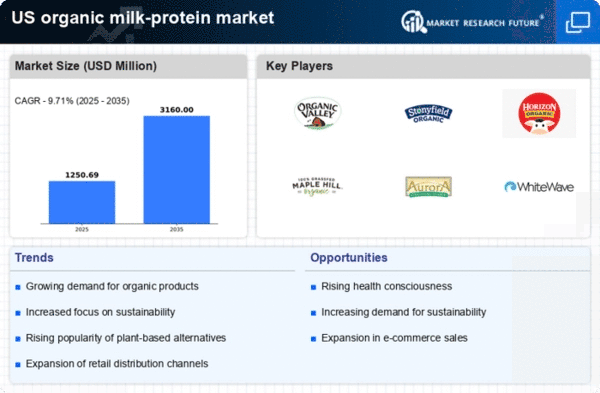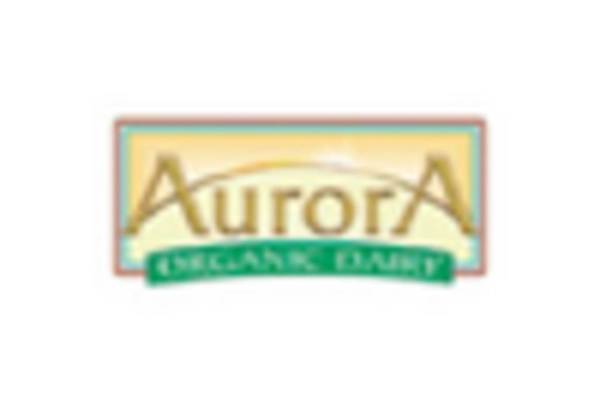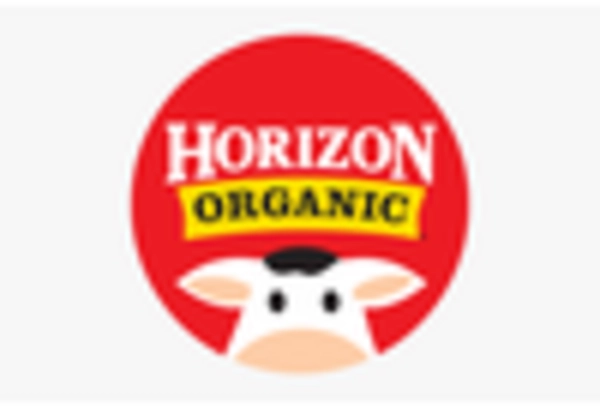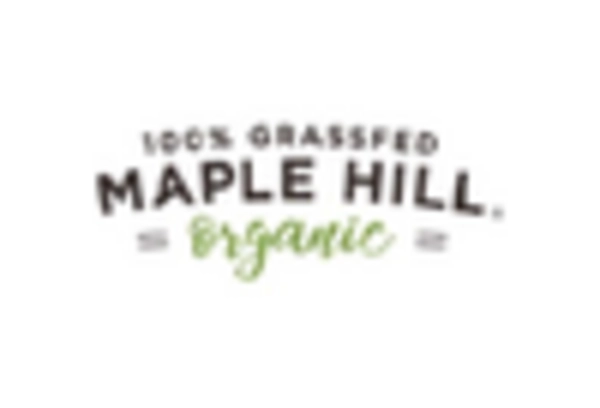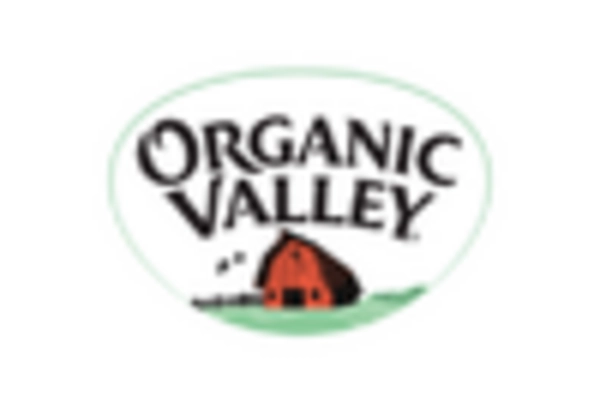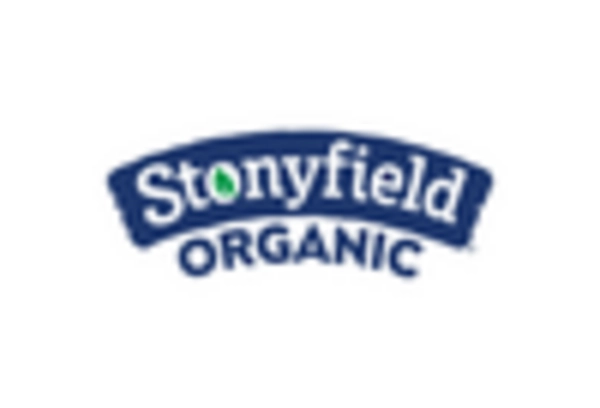Rise of Plant-Based Diets
The organic milk-protein market is influenced by the growing popularity of plant-based diets. While this may seem counterintuitive, many consumers are incorporating organic milk-protein into their diets as a complementary source of high-quality protein. The rise of flexitarianism, where individuals adopt a primarily plant-based diet but still consume animal products, has led to an increased interest in organic dairy. Data indicates that the organic dairy market has expanded by approximately 15% in recent years, as consumers seek to balance their protein sources. This trend suggests that organic milk-protein can coexist with plant-based options, appealing to a broader audience. The organic milk-protein market is thus positioned to capitalize on this dietary evolution, providing a versatile protein source that aligns with diverse consumer preferences.
Evolving Consumer Preferences
The organic milk-protein market is shaped by evolving consumer preferences that prioritize quality, sustainability, and ethical sourcing. Modern consumers are increasingly inclined to support brands that align with their values, particularly those that emphasize animal welfare and environmentally friendly practices. This shift in consumer behavior is reflected in the rising sales of organic dairy products, which have outpaced conventional dairy growth. Data suggests that organic milk sales have increased by around 12% over the past year, indicating a strong preference for ethically produced options. As consumers continue to seek products that resonate with their values, the organic milk-protein market is well-positioned to cater to this demand, fostering brand loyalty and long-term growth.
Supportive Regulatory Environment
The organic milk-protein market is positively impacted by a supportive regulatory environment that promotes organic farming practices. In the United States, the USDA has established stringent standards for organic certification, ensuring that products labeled as organic meet specific criteria. This regulatory framework not only enhances consumer trust but also encourages farmers to adopt organic practices. As a result, the organic milk-protein market is likely to benefit from increased production capacity and improved supply chain efficiency. The organic dairy sector has seen a rise in the number of certified organic farms, which has grown by approximately 5% annually. This supportive environment fosters growth and innovation within the organic milk-protein market, allowing it to thrive in a competitive landscape.
Growing Awareness of Nutritional Benefits
The organic milk-protein market is benefiting from a heightened awareness of the nutritional advantages associated with organic dairy products. Research indicates that organic milk contains higher levels of beneficial nutrients, such as omega-3 fatty acids and antioxidants, compared to conventional milk. This growing recognition among consumers is driving demand for organic milk-protein, as individuals seek to enhance their overall health and well-being. The market for organic dairy products has been projected to reach $20 billion by 2026, with protein-rich options leading the charge. As consumers become more informed about the health benefits of organic milk-protein, the market is likely to see sustained growth, reflecting a shift towards more health-oriented dietary choices.
Increasing Demand for Natural Ingredients
The organic milk-protein market is experiencing a notable surge in demand for natural ingredients. Consumers are increasingly seeking products that are free from artificial additives and preservatives. This trend is particularly pronounced among health-conscious individuals who prioritize clean labels and transparency in food sourcing. According to recent data, the organic food sector has seen a growth rate of approximately 10% annually, with organic dairy products, including milk-protein, contributing significantly to this expansion. The preference for organic milk-protein is driven by its perceived health benefits, including higher nutritional value and better digestibility compared to conventional alternatives. As consumers become more educated about food quality, the organic milk-protein market is likely to benefit from this shift towards natural ingredients.


